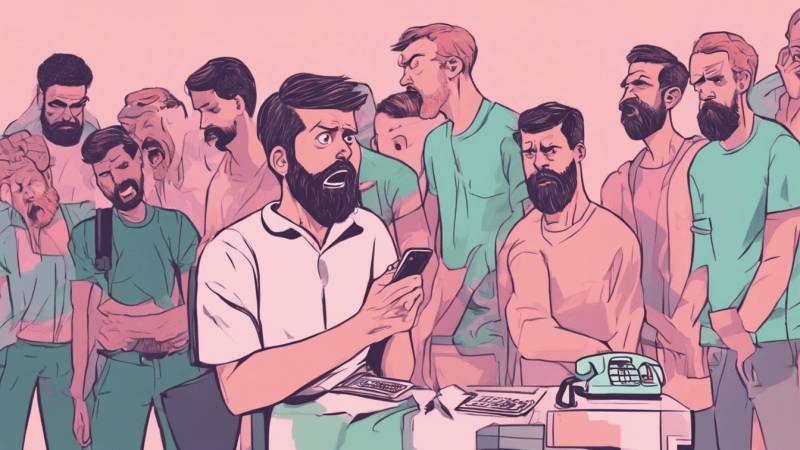
The people of Sindh have spoken, and they have spoken loudly against extremism laden with a climate of immunity that is threatening to shake the foundation of a democratic society.
Sindh's rich history is rooted in Sufism and is marked by its unwavering commitment to peace, diversity, and democracy. Its inclusive social fabric seamlessly weaves together diverse communities. The message of Sufi saints of Sindh, such as Shah Abdul Latif Bhittai, Lal Shahbaz Qalandar, and Sachal Sarmast, reflects in the day-to-day affairs of those living in Sindh.
Despite some minority issues, Sindh's collective conscience fosters racial harmony, celebrating diversity as cultural wealth. The province stands firm against extremism, safeguarding its democratic credentials.
Those in charge of Sindh's affairs must collaborate to develop a unified strategy to combat extremism that has led to extrajudicial killings and police encounters. The case of Dr Shah Nawaz, accused of blasphemy and reportedly killed in a police encounter and then burned by a mob, highlights a dire need for change. The tragic reality is that the accused was denied a fair trial.
It was thus encouraging that on the heels of public outrage emanating from the Mirpurkhas episode, where a blasphemy suspect was killed in a staged encounter, the Sindh Inspector General of Police Ghulam Nabi Memon promptly constituted an inquiry committee and then shared its findings. The Sindh Law Minister Ziaul Hsaan Lanjar, flanked by the Sindh Education Minister and Sindh IGP Memon, shared the inquiry committee's findings.
"I had ordered a swift inquiry into the Umerkot incident, and a detailed investigation has been completed," Lanjar stated. "The report is 31 pages long, using CCTV footage and vehicle trackers to conclude that the encounter was fake. It also establishes the involvement of the DIG and other subordinate officers."
Lanjar stressed that, even if Dr Shah Nawaz was guilty of blasphemy, it was the police's duty to present him before a court of law which would adjudicate his guilt. "The matter is still under investigation, and it's unclear whether he committed the crime or not. His mobile phone has been sent for forensic analysis."
Reportedly, on the back of an inquiry findings, an FIR was lodged by the family of the blasphemy accused against the suspended Mirpurkhas deputy inspector general (DIG), two senior superintendents of police (SSP) of Mirpurkhas and Umerkot respectively, and a cleric among 45 suspects. The FIR asserted that Dr Shah Nawaz was arrested from Lyari and was killed in the Mirpurkhas Sindhri area on September 19.
One hopes that those involved will not only be prosecuted but also punished dejure. The time has come to discourage the practice of scapegoating subordinates to protect senior officials. This case should be used as an opportunity for much-needed reforms in the police department and the accountability of those abusing their authority.
In principle, this incident should serve as a test case for addressing blasphemy cases in accordance with the law. Failure to implement existing laws will leave no one safe. Today, it's the ordinary citizen bearing the brunt of mob mentality; tomorrow, it could be anyone.
We live in a digital age where hacking has become a rampant issue. Subscribers frequently report instances of their Facebook, Messenger, WhatsApp, and other accounts being compromised for multifaceted manipulation. Disturbingly, hackers often target government institutions despite their advanced cybersecurity measures. In contrast, ordinary citizens lack access to and knowledge of such digital security controls, making them more susceptible to attacks. The vulnerability of our digital landscape demands immediate attention to safeguard our personal and national security.
In today's digital age, remaining absent from the digital landscape is no longer an option. The revolution in communication, digital space, and access to digital tools has transformed education, business, commerce, and daily life. However, this increased connectivity also exposes multitudes to looming vulnerability.
Protecting the citizens' lives and property is the state's first and foremost duty. Make no mistake that the system will change when we unite, and justice will prevail
In response to Dr Shah Nawaz Kunbhar's case, Facebook users flooded the platform with disclaimers and affidavits, stating: If contemptuous, discriminatory, or blasphemous content is uploaded to my account, it should be considered a hacked account, with which I have no connection or responsibility.



The flurry of disclaimers surrounding this incident highlights the alarming digital insecurity faced by social media users, particularly in the wake of hacking threats and their devastating consequences. Consequently, this alarming trend underscores the need for enhanced digital literacy, robust cybersecurity measures, accountability for social media platforms and protection of individual rights.
In contrast, mainstream media often sensationalise issues related to bad governance and poor law and order situations in Sindh. Mainstream media outlets failed to adequately capture the robust public reaction against extremist ideologies which was recently displayed in Umerkot.
Yet there were brave voices on social media, which emerged as a powerful platform for raising voices and holding individuals and institutions accountable for their actions.
Author and columnist Nadeem Farooq Paracha conveyed his concern in no uncertain terms about mainstream media neglecting unprecedented protest following the killing of Dr Shah Nawaz in a Facebook post on September 25: "Not a single word in mainstream media about protests in Sindh against Islamist extremists and the extrajudicial killing of a man accused of blasphemy in Umerkot. One can only expect a reaction like this in Sindh. The Sindhis will never remain quiet if their history, heritage and land are threatened by extremism. Religious extremism is an alien concept to most Sindhis. Had Punjab stood up like the Sindhis often do against the crimes of extremists, the situation would not have spiralled so out of control there."
After having uploaded a video of a public protest in Umerkot on his Twitter (now known as 'X') handle, senior journalist Zarrar Khuhro wrote: "For decades, I have been seeing and covering cases of people killed after being accused of blasphemy. Have seen parents disown their children and neighbours accuse neighbours. Never have I seen so many people come out and condemn this injustice."
Umer Cheema, an investigative journalist, wrote in response to a tweet: "Would that Punjab were like Sindh in terms of rejecting right-wingers. Protect Islam from Mullahs. Or neither the religion nor a Muslim will remain safe."
In the aftermath of Dr Shah Nawaz's murder, a certain cleric could be seen in a video kissing the forehead of a high-ranking police officer and a pat on his shoulder for eliminating the victim. This raised many eyebrows as people in Sindh, inspired by the poetry of Sufi saints, had rejected mob rule altogether.
Protecting the citizens' lives and property is the state's first and foremost duty. Make no mistake that the system will change when we unite, and justice will prevail.
Shah Abdul Latif Bhittai, through his poetry, wanted the oppressed to dismantle the artificial and false social values and divisive doctrines through their willpower. Bhittai believed that individual efforts would give rise to a collective ethos. His poetry offers inspiration for human endeavour, revolt, awareness, bravery and perseverance.
"Look at the birds, O men,
They fly in flocks, in unison,
Bound by their exemplary love,
They present for you, a lesson
An example of coexistence"

